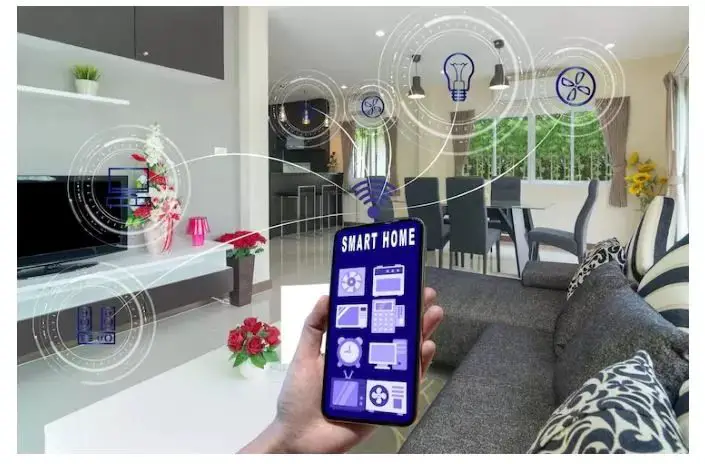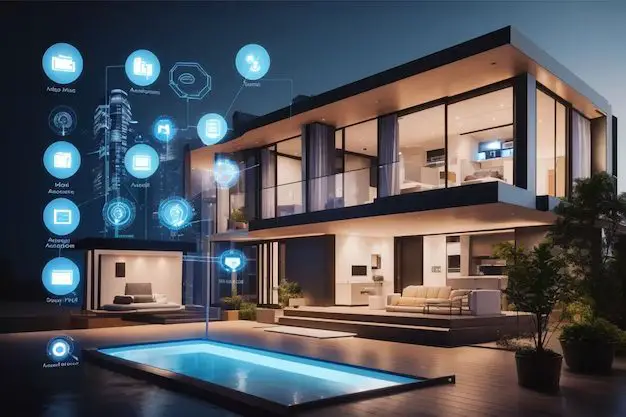Home automation is revolutionizing the real estate market, transforming houses from simple living spaces into high-tech environments powered by intelligent systems. Smart home technology is no longer considered a luxury—it has become a crucial selling feature that significantly impacts property value, buyer preferences, and emerging real estate trends.

Additionally, as homes become more connected, concerns about privacy and security have become increasingly important. The integration of devices such as smart cameras, voice-controlled assistants, and automated lighting or heating systems means that large amounts of personal data are being collected, stored, and sometimes shared with third parties. Homeowners and potential buyers are beginning to question how this data is managed and whether these systems are secure from cyber threats or unauthorized access. While smart home features provide unmatched convenience and energy efficiency, they may also expose residents to risks such as hacking or misuse of sensitive information. As a result, developers, technology companies, and consumers are now more mindful of the ethical implications—seeking ways to enjoy the benefits of home automation without compromising personal privacy and security.
Why Smart Homes Attract Buyers
Smart home features add convenience, security, and energy efficiency, making them highly desirable for homebuyers. Many buyers, especially younger generations, expect properties to include smart security systems, lighting, and climate control.

The choice of smart home assistants—Alexa, Google Assistant, or Siri—has also become an important consideration. Each of these platforms offers distinct advantages: Alexa is known for its wide compatibility with various smart devices, Google Assistant excels in providing accurate information and seamless integration with Google services, while Siri appeals to those already using Apple’s ecosystem. The selection often depends on the homeowner’s existing devices and personal preference, influencing the overall smart home experience.
Key Benefits of Smart Homes in Real Estate:
- Energy Efficiency – Smart thermostats and lighting systems help reduce electricity and heating costs, making homes more attractive to eco-conscious buyers.
- Security & Safety – Smart locks, surveillance cameras, and motion detectors provide enhanced security, increasing a home’s appeal.
- Convenience & Automation – Voice-controlled assistants, automated appliances, and remote monitoring systems offer ease of living.
According to real estate experts, homes with smart technology can sell faster and at higher prices than those without. Buyers are willing to pay more for features that offer long-term savings and convenience.
The Impact of Smart Technology on Property Value
A smart home can increase property value by 3–5%, depending on the type and extent of automation. Features like smart thermostats, home security, and integrated lighting are seen as valuable investments that add to a home’s marketability. In competitive markets, properties without smart technology may struggle to attract buyers.

Moreover, smart home technology can greatly benefit people with disabilities by enhancing accessibility and independence. Voice-controlled assistants, automated doors, smart lighting, and customizable environmental controls make daily tasks easier for individuals with mobility, vision, or cognitive impairments. These features not only improve quality of life but also make such homes more appealing to a wider range of potential buyers seeking inclusive living solutions.
Challenges and Considerations
While home automation adds value, there are challenges. Not all buyers are tech-savvy, and some may prefer traditional home setups. Additionally, outdated smart technology can become a liability if it requires costly upgrades. Sellers should focus on installing widely compatible and user-friendly systems to appeal to the broadest range of buyers.
Conclusion
Smart home technology is no longer a trend—it’s shaping the future of real estate. As automation becomes standard, homebuyers will continue to prioritize properties with advanced technology. Whether buying, selling, or investing, embracing smart home features is a strategic move that enhances property value and marketability.